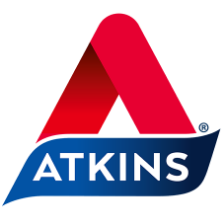- Get inspired
- Atkins Blog
- Boost your brain power
Ketones are the key
Ok, so let’s start by busting a myth – our brains don’t need lots and lots of glucose to work. They can function well, if not better, on a combination of two types of natural energy made by your liver.
Right from a few days into a low carb diet like Atkins, your liver starts to makes ketone bodies from fat stored in your body. This process is called ketosis. These ketones are an alternative energy source to glucose and your muscles, heart and brain LOVE them.
Homegrown glucose
While you’re on a low carb diet, those parts of the brain that do need glucose can be fuelled by something called glycerol. This is a type of glucose which is produced in the liver using amino acids from protein and body fat. This process is called gluconeogenesis.
5 brain boosts
Both ketosis and gluconeogenesis are entirely natural processes that can bring 5 big brain boosting benefits:
- Better brain function
Several studies have shown that a ketogenic diet, like Atkins, leads to improved brain function.
- Fewer migraines
Low carb diets have been shown to reduce the frequency and severity of migraines. In fact, I’ve worked with many people who have found relief within the first few weeks of following Atkins.
- More mental clarity
We know from experience that once your body is used to a low carb diet such as Atkins – or keto-adapted as we call it – many people feel that they can think more clearly and concentrate more on day to day tasks.
- Improved memory
An interesting study was conducted on elderly patients at risk of Alzheimer’s. They were put on a low carb diet and after just 6 weeks their memories improved. This is because Alzheimer’s may be partly caused by brain cells becoming resistant to insulin – the hormone that regulates the level of sugar in your blood. Research is still in the early stages but it’s exciting to see the developments surrounding this disease.
- Helps epilepsy
Many studies have shown that low carb lifestyles can reduce the number of seizures suffered by people with epilepsy, especially children.

Atkins Nutritionist



